Meet the Presidents
AT BERKS COUNTY'S 5 COLLEGES & UNIVERSITIES
The president of an institution of higher education often sets the tone for the college or university as a whole. He or she can serve as a source of inspiration and motivation for faculty, staff and students. That influence can even, in some cases, extend to the community which the institution calls home. Meet those leading the charge in Berks on the following pages.
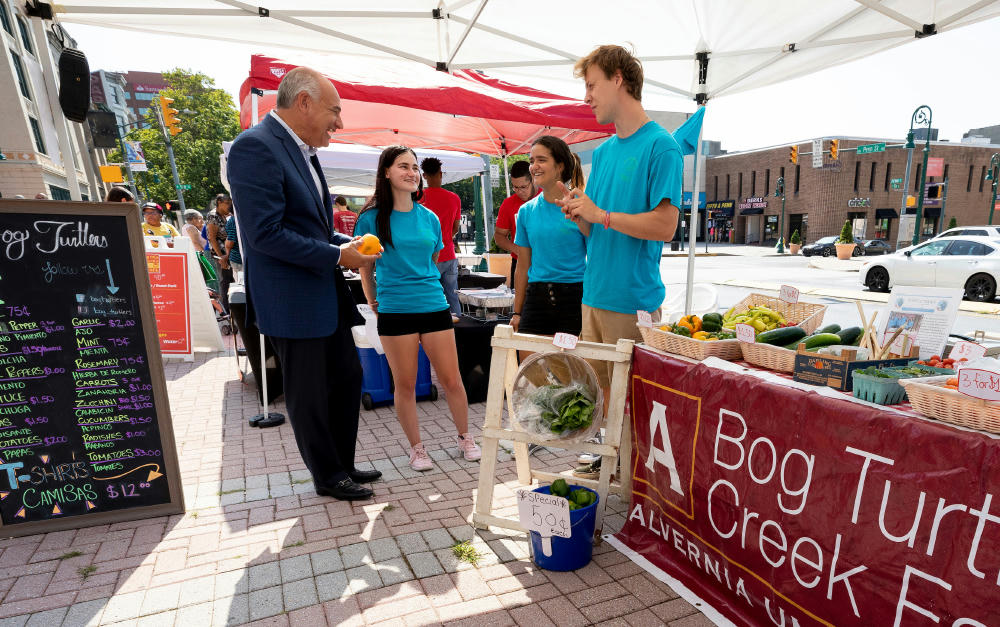
President John R. Loyack and Reading CollegeTowne:
Alvernia’s Strategic Enabler
By Richard Bader | Photos courtesy of Dan Z. Johnson
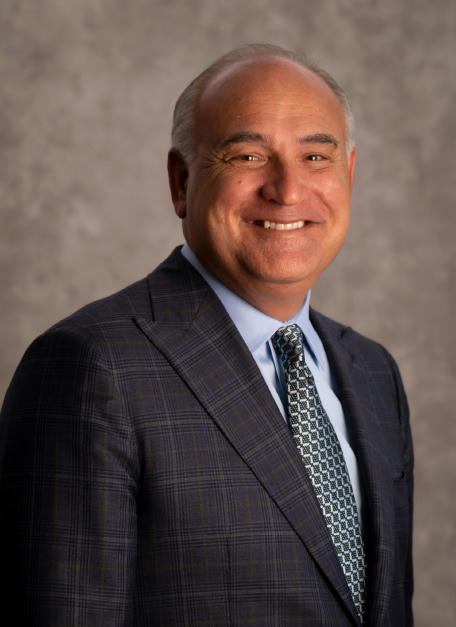
One of the things that made John R. Loyack attractive to Alvernia when the university was searching for the right person to take over as its seventh president was his vision of revitalizing Reading by transforming it into a vibrant college town. The idea made a lot of sense. Alvernia had been ratcheting up its presence in the city for years, and Reading, which for too long had been more likely to show up on struggling-city lists than on up-and-coming lists, was poised to rebound. Now, nearly a year after Loyack took over as Alvernia’s president, the Reading CollegeTowne movement is in full swing.
Alvernia’s new president has some difficulty coming up with a simple description of the project. “CollegeTowne is probably the most complex, multifaceted initiative you could take on at a college,” he says. The project’s overarching goal is to reenergize economic development in downtown Reading and to do so in ways that advance the university’s mission. It calls for establishing a physical presence for Alvernia downtown, launching a new academic program in engineering that will be based in Reading, revitalizing the business major and other academic programs while giving them a downtown home, and creating a student-centered business incubator to provide guidance and support to new businesses as they work to get up and running.
Alvernia’s physical presence in Reading comes through the purchase of 401 Penn St., the five-story, 260,000-square-foot former CNA Insurance building in the city’s center. Renovating and moving into an existing building — as opposed to undertaking new construction — reduces costs while significantly accelerating the project timeline.
“You bring the building back to life, repurpose it, and bring economic activity to it, expand the mission of the institution, and grow the city, all in one activity,” Loyack says. Loyack came to Alvernia from King’s College in Wilkes-Barre, where he was executive vice president of finance and the architect of a college-town-energized turnaround that today gets described in biblical terms, with words like “redemption” and “resurrection.”
One of the reasons Alvernia selected Loyack as president was that he brought substantial expertise not just in higher education, but also in the world of business. Before taking the job at King’s College in 2012, he was president and CEO of Optim Energy, a Texas-based power-plant operator. Before that, he held other leadership positions in the corporate sector.
At its core, he says, a college is a business, and it needs to do the kinds of things that keep any successful business healthy. It needs to generate revenue, grow, be responsive to its customer base, and offer what people want in the manner they want it. In both, there’s a product. At a university, the product is the student. And in at least this one fundamental way, higher education and the corporate world are very different. “The specialness of the university is the transformation of the student,” Loyack says. “And it’s extraordinary.”
For more info on the Reading CollegeTowne movement visit alvernia.edu/collegetowne.
Alvernia University | alvernia.edu
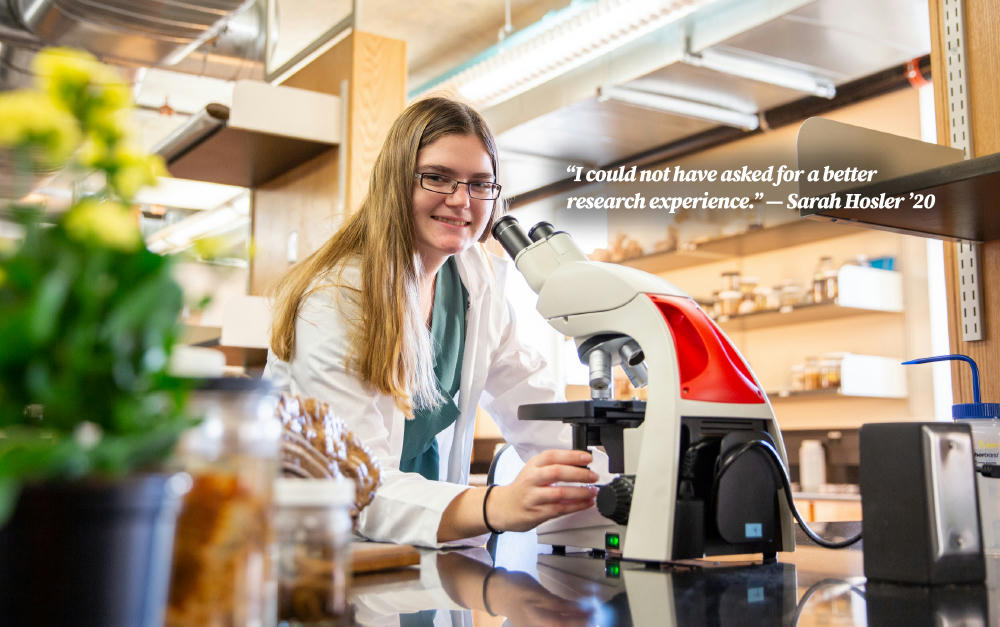
Jacquelyn Fetrow:
Educating the Whole Student at Albright College
Top Photo by Scott Hettinger | Headshot by Dan Z. Johnson
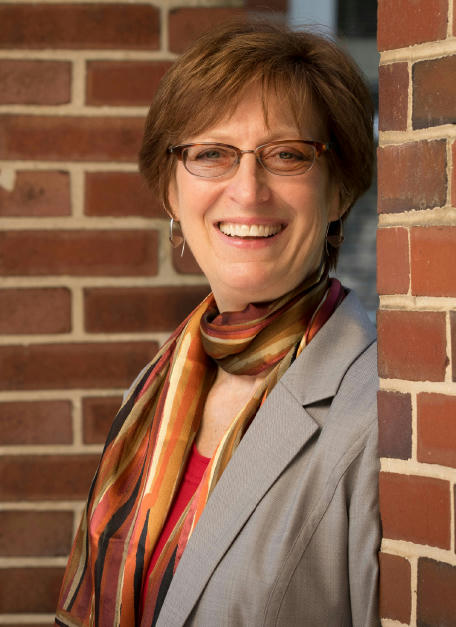
Albright College’s 15th president, Jacquelyn S. Fetrow, Ph.D. ’82, is the first Albright graduate to lead the college. When she began her tenure as president on June 1, 2017, she was already recognized as an accomplished higher education administrator and award-winning teacher, widely published and listed as an inventor on five U.S. patents. Since arriving at Albright, Fetrow has worked to engage people from all corners of the college community in a new kind of strategic planning process. Using data and the college’s values and institutional priorities as a guide, campus teams work together to make recommendations and implement new strategies for a vast array of purposes that range from student success to financial stability.
“The Deep Dive Engagement Process is an emergent and ongoing method of researching data and examining successful and unsuccessful short- and long-term models,” says Fetrow. The college’s first institutional priority under Fetrow’s leadership is developing and supporting a thriving, supportive, equitable and empowered community. To that end, she has built a Council for an Inclusive, Thriving and Equitable Community (CITE-C), comprised of students, faculty, staff and administration, who keep inclusivity and equity issues at the forefront of the college’s decision-making processes. The council’s focus has broadened from discussion to demonstration, with members taking an active role in leading by example.
“I know from experience the lifelong value that Albright College offers,” says Fetrow. “Albright’s student body population is among the most diverse in the state. Yet many of our students don’t actually come from neighborhoods that host such a myriad of people, and [they] can be initially unprepared for such diversity of people and thoughts. So we are working to educate our community in inclusivity. We want our graduates to be well prepared to live in tomorrow’s interconnected world. Really, it’s part of educating the whole student.”
The daughter of a 1958 Albright alumna, Fetrow understood at a young age that she wanted to study science, but wasn’t sure if she was more interested in biology or chemistry. Luckily, at Albright, students are encouraged to personalize degrees by crossing or combining areas of study; and the college’s combined program in biochemistry meant that she didn’t have to choose. With an interest in proteins that took root under the mentorship of an Albright professor, Fetrow co-founded and expanded a biotechnology software company called GeneFormatics, served on the leadership teams of different colleges, and started an interdisciplinary graduate program in structural and computational biophysics at Wake Forest University.
Her ongoing research into protein recently came full circle when she began serving as a one-on-one mentor to Albright students as part of the Albright Creative Research Experience. “Albright’s cross-disciplinary, personalized approach to education and diverse, close-knit community prepares students for success in life and careers,” says Fetrow. “And it’s through the close, personal connections that students have with professors, mentors, coaches and staff members that this success is possible. Education isn’t just about learning facts; it’s about learning how to think — an understanding that I attempt to bring into my classrooms when I teach. And mentorship such as this creates opportunities for students of academic promise to exceed their own expectations.”
Albright College | albright.edu
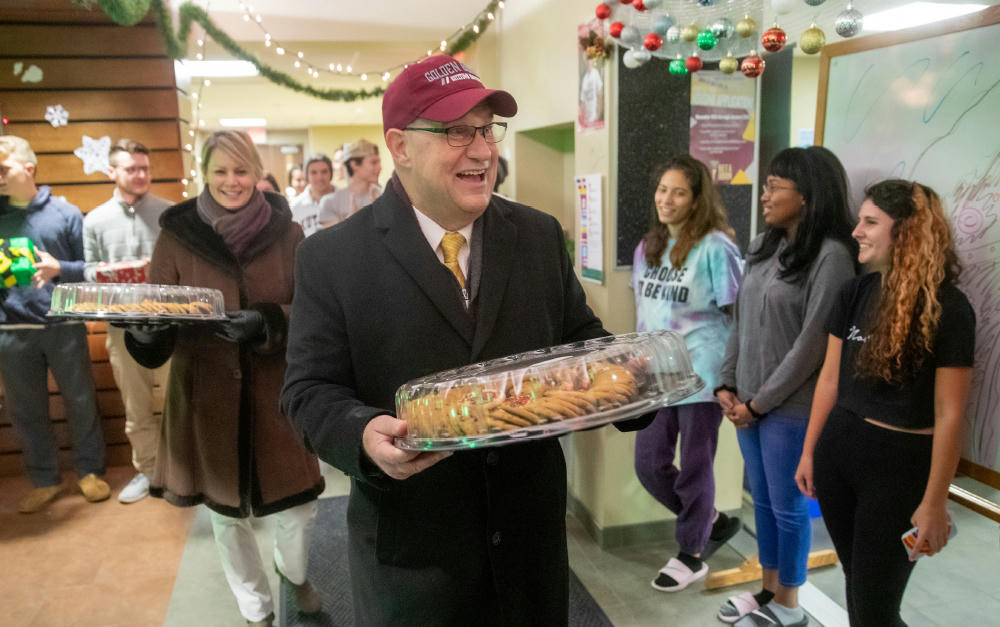
Dr. Kenneth S. Hawkinson:
Looking Ahead to Kutztown University’s Future
Photos by Andrew Russell, Kutztown University

His favorite pastime is getting lost in a historical fiction novel, but Dr. Kenneth S. Hawkinson, Kutztown University's 12th president, is always looking toward the future. He envisions KU as an educational institution and a portal into the wonder of the region’s culture, a goal accomplished by fostering partnerships with local organizations like the Pennsylvania German Cultural Heritage Center, the Rodale Institute and Hawk Mountain Sanctuary. Strengthening the bonds between the university and its neighboring communities, with the goal of making the dream of college a reality for more students, is at the forefront of his mind.
"I'm constantly in awe of our campus and its surrounding area," he says. “We have historically served students who have ‘grit,’ for whom a college education opened doors to professions in teaching, business, the arts and sciences and so many other fields. With the increasing prosperity of Berks County, our graduating students will have the opportunity to stay in the region to be close to their families and friends."
Hawkinson loves a quintessential success story (his favorite movie is Forrest Gump). In fiction, characters overcome adversity and pull themselves up by their bootstraps, triumphing without any external help. In reality, Hawkinson believes that education is the “bootstrap” through which people can achieve success. During his five-year tenure at Kutztown, he’s focused on implementing programs designed to facilitate student success and retention, including working with the academic leadership and key faculty to introduce a first-year seminar and revise the general education curriculum. His dedication to students is evident in small gestures, like weekly campus walks with the "first dog," Wynnie, and grand accomplishments, such as tripling institutional financial aid and breaking fundraising records.
Like the eponymous hero of Forrest Gump, Hawkinson sees potential everywhere. With KU’s leadership team, he’s established transfer and articulation agreements with several community colleges, including HACC, Central Pennsylvania’s Community College; Luzerne County Community College; and Bucks County Community College; and launched the PROFS (Providing Resources and Opportunities for Future Standouts) initiative, a collaboration with ChildPromise that provides college students who have had experience in foster care with housing, stipends to help with living expenses and other assistance.
The recent pandemic crisis forced the sudden closure of Kutztown’s campus, but the university was able to successfully transition 1,767 courses from in-person to virtual delivery via Zoom or interactive presentations, keeping students within a cyber classroom. Although challenging, the shift was made easier due to the university’s embrace of distance learning, illustrated by a first-of-its-kind, fully online bachelor’s degree in sociology; and both Doctor of Social Work and Master of Fine Arts in communication design degrees with low-residency requirements.
"Kutztown's online courses and programs give our students more choices," Hawkinson says. "Some students have a mix of face-to-face with an online class, which allows them to go more at their own pace and work from anywhere. Advances in the delivery of classes make it easy for learners to interact with other students and their professors, and experience the joy of learning. If you’re considering getting your bachelor’s degree, or an advanced degree, go for it!"
Kutztown University | kutztown.edu
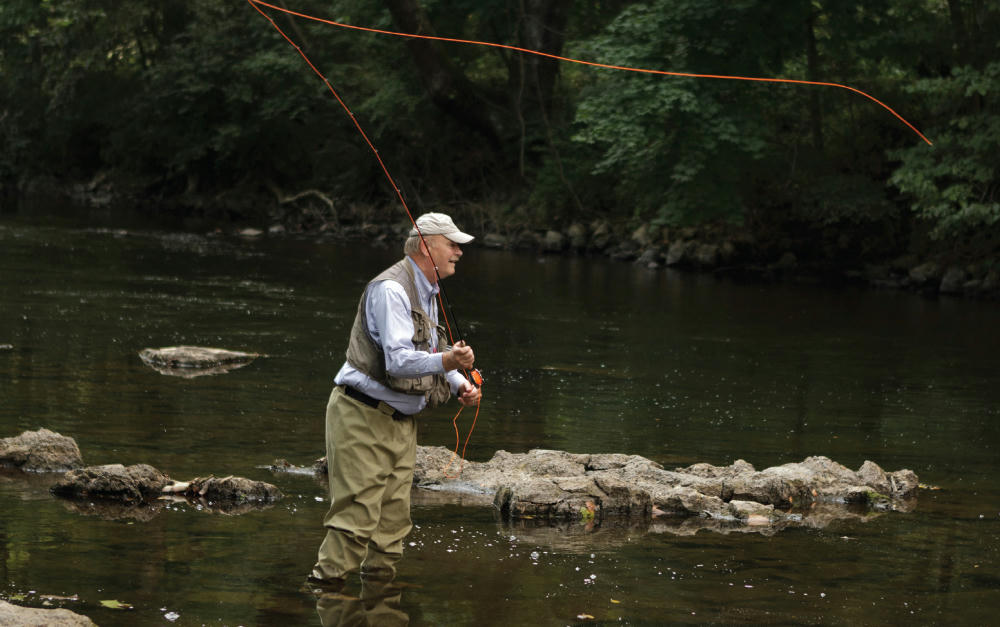
Penn State Berks Chancellor Keith Hillkirk to retire:
Leaves legacy of community engagement, ethics and sustainability
Top Photo by Theo Anderson | Headshot by Katie Quinn, Penn State Berks
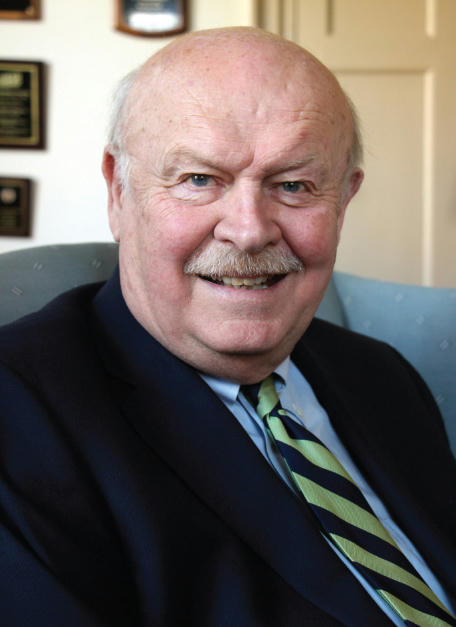
Last fall, R. Keith Hillkirk announced his plans to retire on Aug. 1, 2020, after more than 15 years of service to Penn State. He joined Penn State Berks as chancellor in July of 2011 and previously served as chancellor of Penn State Schuylkill from 2005 to 2011. But rather than spending the months leading up to this milestone celebrating, Hillkirk has been hard at work leading the college through the coronavirus global pandemic. He has also postponed his retirement until the end of the year.
With his thoughtful and collaborative leadership style, Hillkirk rallied faculty, staff and students to find creative ways to work together and adapt to the “new normal” of remote teaching and learning in a very short period of time.
A strong advocate for relieving student debt, two major scholarships were established under his tenure: the Cohen-Hammel Fellows Program for outstanding Penn State Berks students and the 60th Anniversary Scholarship, funded by the college’s 60th anniversary gala.
Despite the many responsibilities that come with his position, Hillkirk is always engaged on campus. He can often be seen walking to campus from his home in Bern Township, taking the short jaunt across a footbridge and through Gring's Mill Recreation Area. He even teaches a fly-fishing course — an endeavor that combines his love of teaching with his love of the sport. Initiatives that Hillkirk has overseen include the construction of the Perkins Plaza, an outdoor seating area with a water fountain and clock tower. The Luerssen Building underwent a major renovation, adding state-of-the-art science labs, and was renamed the Luerssen Science Building. Currently, construction is underway for a significant expansion and renovation of the Beaver Community Center, upgrading it to a first-rate athletic and educational complex.
In 2015, St. Joseph Regional Health Network joined Penn State Health and was renamed Penn State Health St. Joseph. Hillkirk and John Morahan, president and CEO of Penn State Health St. Joseph, led the effort for the two institutions to collaborate on a wide variety of initiatives. This was the beginning of a unique collaborative partnership between a Penn State campus and a health network.
Penn State Berks also opened the doors to the Berks LaunchBox, part of Invent Penn State, located within the GoggleWorks Center for the Arts in downtown Reading.
In 2017, Hillkirk and his wife, Suzanne, created the Hillkirk Family Program Endowment for Ethics and Sustainability. This fund provides resources for initiatives that enrich the campus community in creative and meaningful ways.
"It's been an honor and privilege for Suzanne and me to serve Penn State through our work at Penn State Berks,” says Hillkirk. “The mission of the commonwealth campuses to serve students, families and communities across Pennsylvania is important, and we are thankful to have had the opportunity to share this time with such dedicated faculty, staff and alumni."
When asked what has given him the most satisfaction during his tenure, Hillkirk said, “Penn State Berks is truly engaged in the community, and I am proud to be part of that legacy.”
Penn State Berks | berks.psu.edu
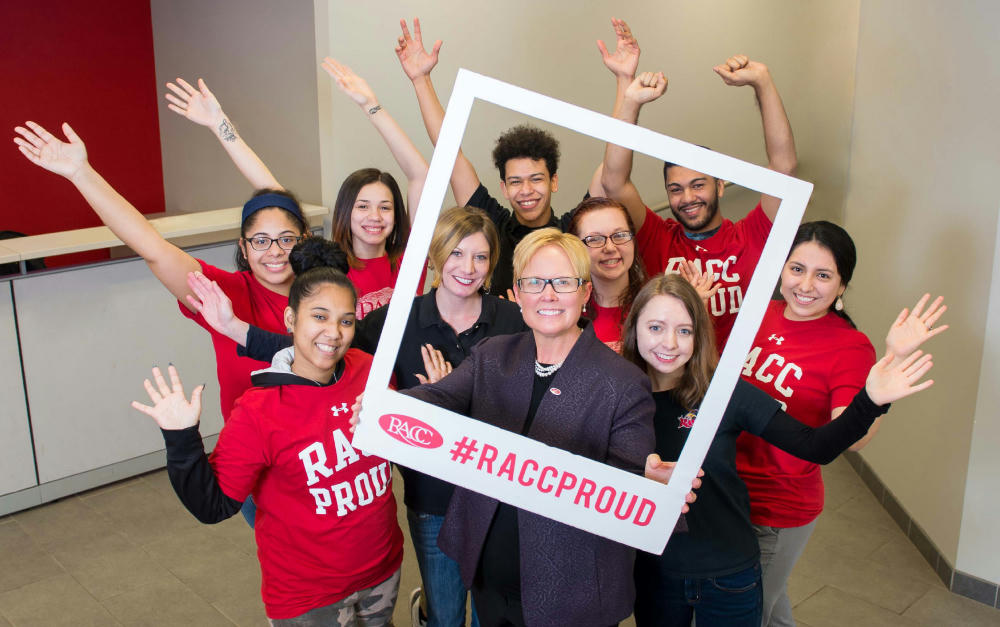
Dr. Susan D. Looney:
From the Department of Defense to RACC
Photos by Susan L. Angstadt Photography
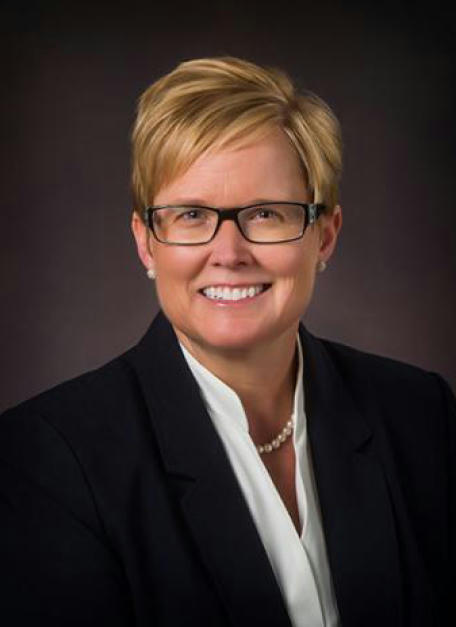
Prior to entering higher education as a professional, Dr. Susan Looney spent almost five years with the Department of Defense as an operations research analyst at Fort Monmouth in New Jersey, where she created and performed detailed forecasting and planning models and briefed top U.S. Army officials and the House Appropriations Committee in Washington, DC on budgets and results.
Dr. Looney's teaching career began in 1998 when she accepted a full-time faculty position in accounting at Mohave Community College in Arizona. At Mohave, she advised its Phi Theta Kappa chapter, and in 2001, she received the Paragon Award for Outstanding New Advisor. She remained with Mohave Community College until the fall of 2001 when she returned to the east coast to be closer to family.
It was then that Dr. Looney accepted a full-time teaching position in Business Administration at Delaware Technical Community College. While a faculty member at Delaware Technical Community College, she was honored with two awards that speak to her commitment to students in and outside the classroom: the Distinguished Advisor Award from Phi Theta Kappa and the Teaching in Excellence Award from the Accreditation Council for Business Schools and Programs.
In her 23 years as a full-time community college educator, eight as a faculty member and 15 years as a senior administrator, Dr. Looney has worked in diverse roles, including: Assistant to the Campus Director and Director of Corporate and Community Programs at Delaware Technical Community College and Interim Assistant Vice President of Academic Affairs, Arts and Sciences at Colorado Mountain College. Dr. Looney was named Dean of Instruction at Reading Area Community College (RACC) in 2014 and named Senior Vice President of Academic Affairs/Provost at RACC in 2015.
After completing her A.A. at Brookdale Community College, Dr. Looney went on to earn her B.S. and MBA in business administration from Monmouth University, JD from Widener University School of Law, and ultimately an Ed.D. in higher education leadership from Nova Southeastern University.
Dr. Looney maintains strong ties to the community and strives to enhance the college’s partnerships with area organizations and non-profits. She serves on the Reading Hospital Board of Trustees, as well as the boards of the United Way of Berks County and the Berks Alliance. Regionally, Dr. Looney is a commissioner on the Middle States Commission on Higher Education, and on the national level, she is a member of the American Association of Community Colleges (AACC) Commission on Student Success.
Reading Area Community College | racc.edu